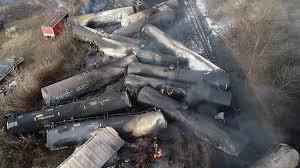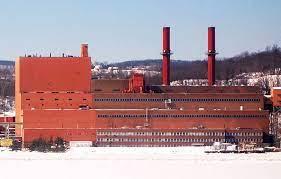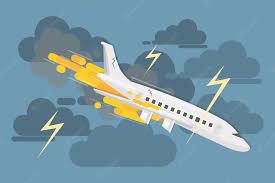Firstly regarding the train derailment, it’s a sickening cheap shot for Republicans to fault President Biden for being in Europe, not Ohio. The derailment affects one community; the war in Europe threatens the whole world’s future. Besides, the federal government quickly tackled the derailment. And Republicans nitpicking that are doubly hypocritical because they were the ones who cut back on train regulation, a factor in this disaster.

The derailment spilled toxic chemicals with nasty environmental and human impacts. But a newspaper commentary I read* said it’s something even worse: a national security issue. Saying society’s main task is keeping us safe, and it’s failing. Our infrastructure is not up to snuff. Worse disasters could happen. The piece’s whole tenor was that no such accidents should ever happen.
I disagree.

I recalled a decades old case, Central Hudson Gas & Electric Company’s costly Danskammer outage; a giant installation got badly damaged. The State Public Service Commission ordered an investigation, and I presided as administrative law judge. The facts showed Central Hudson had in place multiple safety backstops that should have prevented the disaster, but in the particular circumstances those safety features unforeseeably thwarted each other. My report posited a concept of normal accidents. In any big complex enterprise, a certain incidence of mishaps must be deemed normal. Part of the cost of doing business. Perfection is an unattainable standard. Stuff happens. And finding no way in which the utility’s management could be held negligent or culpable, I recommended no penalty.
The Commission disagreed and made the company eat the cost. Unwilling to be seen as a toothless watchdog exonerating the utility.
The Ohio derailment, we’re told, was preventable. Maybe so. But the train was below the speed limit; sensors functioned properly and alerted the crew to a dangerous overheating situation; they took action and braked. But that failed to prevent the derailment.
Of course the full picture is more complex. We’re also told the train was under-staffed. Balancing safety versus cost is a constant challenge in any operation. You can always be safer, but that has a cost, which can actually be not a prudent investment but a waste of resources. And it’s easy to second-guess such a judgment after an accident.

Those commentary writers did, again, talk about America’s aging infrastructure as a factor here, and that’s a valid concern. There, as a generalization, we aren’t optimally balancing cost and safety. President Biden’s trillion-plus infrastructure program is a significant rectification step, for which he’s not getting enough credit. Mainly because the results aren’t (so far at least) very visible. Which, in turn, is a consequence of a deeper problem, our sclerotic civic culture, making it hard to get anything big done, with infrastructure projects hobbled by nimbyism and pervasive regulatory quicksand.
Yet the Ohio derailment — like Danskammer — ought to be seen as a normal accident. Imagining that such things should just never happen is fundamentally wrong. Of course we should study such episodes with an eye to preventing recurrence. But we’ll never achieve an accident-free world.
If we didn’t have trains, we’d have no derailments. But if we do have trains, we have to expect occasional derailments (or other sorts of accidents). Having such a complex operation with nothing ever going wrong is a fantasy. Danskammer was a perfect illustration of how, despite all prudent precautions, accidents still happen, it’s in the nature of things.

Planes sometimes crash, but we don’t stop flying. Actually, the rarity of air crashes, in relation to miles traveled, is astounding. Given how inherently dangerous it must be reckoned to send multi-ton contraptions miles high, traveling hundreds of miles an hour, in all sorts of tumultuous weather. Here at least it seems we’ve got the balance of cost and safety pretty much right.
Cars crash too — driving is in fact far more dangerous than flying — but we don’t stop driving either. Darn courageous when you think about it.
These examples characterize the entirety of the human enterprise. We have indeed built a stupendously complex civilization, full of all sorts of inherently risk-laden operations — like airplanes, cars, railroads, power plants, and so much else — all of which works really remarkably well. With accidents, mishaps and failures, in the big picture, acceptably rare. While giving us a rich rewarding quality of life.

I don’t take it for granted. To me it’s all a veritable miracle. I’m thrilled by the world we’ve made.
Yes, stuff does happen. People even die.
But life itself is inherently dangerous, and everyone dies in the end. Before that, we face the dangers and live the best lives we can.
